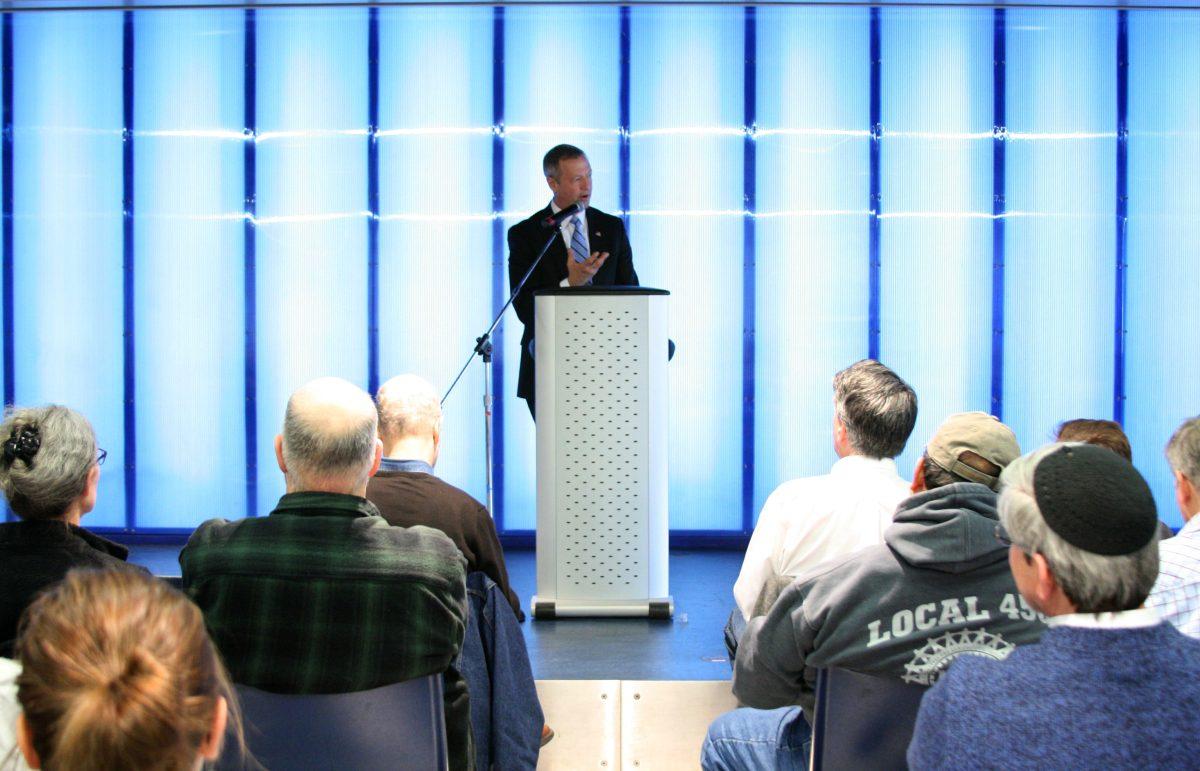Photo by Lórien MacEnulty
BY LÓRIEN MACENULTY
In an address likening political strategies to plays in a football game, former presidential candidate Martin O’Malley called on Drake students to take both offensive and defensive action against measures in the Iowa state Senate that would restrict voting rights. A crowd of about 40 people welcomed the former governor of Maryland to Pomerantz Stage last Saturday, ready to discuss the implications of a proposed bill.
Iowa Secretary of State Paul Pate proposed the Election Integrity Act in early February, which would require voters to show a photo ID from the Iowa Department of Transportation at election booths.
Assistant Iowa Attorney General Nathan Blake, who also spoke at the event, said signature verification has little to no evidential backing as a potential means of targeting voter impersonation fraud.
“What we see is that state after state, particularly states with republican majorities, have been pushing for voter ID requirements and laws that, under the guise of securing the right to vote, actually discourage people from voting and make it harder for people to vote,” O’Malley said.
Blake said that the measure is a strategic initiative to reduce voter turnout in students who tend to be more politically progressive. Jordan Sabine, who helped organize the event, said it would especially affect out-of -state students.
“It’s going to really limit Drake students because so many of us are from out-of-state,” said Jordan Sabine, senior strategic political communications major. “We may not have an Iowa ID or driver’s license and we would have to make the effort to go get one of those in order to vote.”
O’Malley urged people to voice their disapproval of the Election Integrity Act as a defensive operation against “encroachment on voting rights.” The offensive tactic, O’Malley said, is to establish a fundamental constitutional right to vote.
“I think most Americans are surprised to hear that there isn’t a constitutional right to vote,” O’Malley said. “If there were a constitutional right to vote in the U.S. Constitution, then there would be a much higher level of scrutiny that would be applied to these laws and many would probably be found unconstitutional.”
O’Malley has long been an advocate of accessible voting. Under his jurisdiction, over 50,000 felons in Maryland had their right to vote restored. He also expanded early voting periods and made same-day registration available.
“Fundamental to our system of government is the belief that we are all in this together, that we need each other, that, in fact, democracy only works when more people participate, not fewer,” O’Malley said. O’Malley said that the key to gaining back a Democratic Congress lies with “tapping into this wellspring of younger candidates and getting them to run for state and local office.”
This involves removing obstacles that impede the votes of the younger generation, including the addition of multiple days for voting, expanding early voting, easy access to absentee ballots, and extending hours on voting day.
“History has shown that dissidence only succeeds when citizens check out of the process,” O’Malley said, “when parties become weak, when the press become weak, when other institutions fail to provide the checks against the trampling of our constitutional rights.”







